The journey is the reward
A lot of practice and a different approach to theory were on show during the first ETH Week. Over the course of the week, about 130 students from 15 departments developed proposals for a sustainable food system. The event forms part of the Critical Thinking initiative, in which ETH Zurich promotes creative and inter-disciplinary thought.
They came to experience a new approach of teaching, develop their own ideas and try out different ways of learning. And they were not disappointed. About 130 students from more than 40 different Bachelor’s and Master’s degree programmes took part in ETH Week; at the end of six, intense and work-filled days, all were hugely enthusiastic about the project. The theme of this first ever ETH Week, which took place from 6 to 11 September 2015, was ‘The Story of Food’.
The participants learned about the complex relationships in the global food system, and then in 12 small groups developed creative solutions to the problem of sustainable food. “It was extremely varied and demanding, and I discovered new perspectives and approaches to problem solving,” explains Yannik Schlup, a third-semester master’s student in Agricultural Science. “It was great fun and I learned a lot about the complexity of the food system,” says Gwyneth Halstead-Nussloch, a second-semester master’s student in Computational Biology and Bioinformatics. “It was very creative, and I found it exciting to learn how to define a good problem and work on the solution in a group,” reports Sander de la Rambelje. The third-semester master’s student in Biomedical Engineering also wants to exchange ideas with students from other disciplines in the future.
Month-long preparations
ETH Week was of part of the Critical Thinking initiative. Christine Bratrich, director of ETH Sustainability, organised the week together with a core group. The aim was to cater to the wishes of students looking for more interdisciplinary collaboration on today’s major societal topics within the narrow “Bologna framework” of their higher education studies. ETH Zurich hopes that the initiative will promote critical and independent thinking among students.
On behalf of the University President and Rector, the core team worked on the ETH Week concept – the preparations took almost a year. Numerous academics and assistants from various ETH departments, as well as external experts and companies were involved. “The World Food System Center made a significant contribution to the concept development and its implementation,” says Bratrich. The university leadership also gave its full support to the project. “The university management was immediately supporting the proposal.” Thus, ETH Week was opened by Rector Sarah Springman, with ETH President Lino Guzzella announcing the best concepts at the closing event.
The concepts aimed to show creative approaches to solving the issues inherent in four complex topics: ‘Sustainable Production, ‘Food Waste and Losses’, ‘Sustainable Diets’, and ‘Feed and Food Imports into Switzerland’. All solutions were designed to be implemented in Switzerland.
One topic, which occupied many of the small groups, was the management and alternative concepts to reduce or avoid food waste. Solutions such as ‘Dumpy’, a tram trailer for Zurich into which commuters can throw their bio-waste, project ‘Brobi’, which turns leftover bread into beer, and apps ‘Waste no more’ and ‘Wasteless Food’, which help with household food management, are all designed to ensure that Swiss households throw away less than a third of their food in future.
Twelve creative concepts
An expert jury, comprising two representatives from business, two from science and two non-participating students, evaluated the 12 concepts and presentations. From a business perspective, the jury was most impressed with project ‘D-Aware’, which aims to combat vitamin D deficiency through new measurement technology, a public awareness campaign in public toilets and free tests in pharmacies. From a scientific point of view, the educational programme ‘EduAct’ came out on top; it is designed to promote an informed approach to food in schoolchildren. And the independent students on the jury awarded beer project ‘Brobi’ the prize for the most convincing formulation of their problem statement and presentation of their solution. The participants themselves were also able to vote for their favourite concept through the ETH EduApp, awarding the most points to the creative presentation from the team behind the ‘Dumpy’ tram trailer.
Before the participants developed their concepts, they attended lectures, debates and various field trips in the first few days of ETH Week, which gave them an overview of the complex issues surrounding the global food system. Only then did they start to select their problems and work on their solutions. “ETH Week is about working together on approaches to define a good problem statement and suggest creative solutions,” explains Bratrich. “It’s not the end result, but the journey that matters.”
Full of enthusiasm
And the students embarked on this journey with enthusiasm. Using their initiative and developing their own ideas – that was the reason why many of them had signed up for the programme. The students discussed ideas intensely with one another from day one; they were led by tutors who were there primarily to guide them on their methods and team processes, but not with the content of their proposals. In addition, the participants received special workbooks for each day, in which they were given further information, made notes and documented their results.
The central meeting point during the week was the specially created ‘ETH Week Hall’ at the Hönggerberg campus. The construction site of the canteen in the HPR building was converted into a multi-functional event location with group work spaces, an auditorium area with chairs for presentations and debates, and lounge seats made from pallets for informal networking. To further promote team spirit and the exchange of ideas, every day began with a sporting activity and ended with a communal meal and activities such as cinema or volleyball. And there was even a football match, where students played together with the ETH Zurich President.

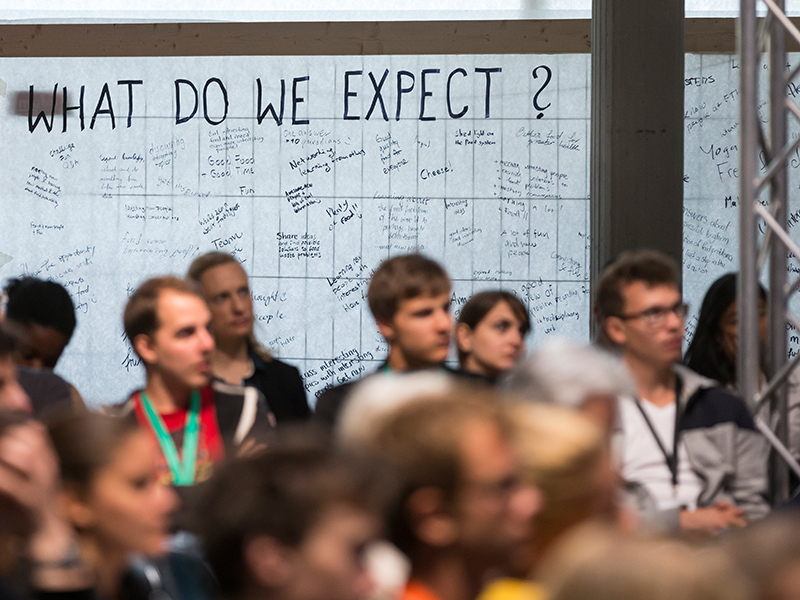
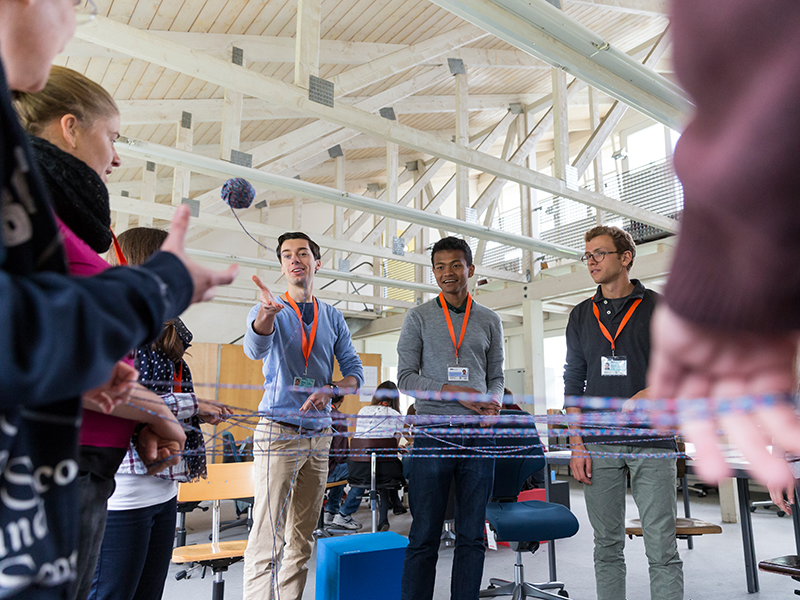
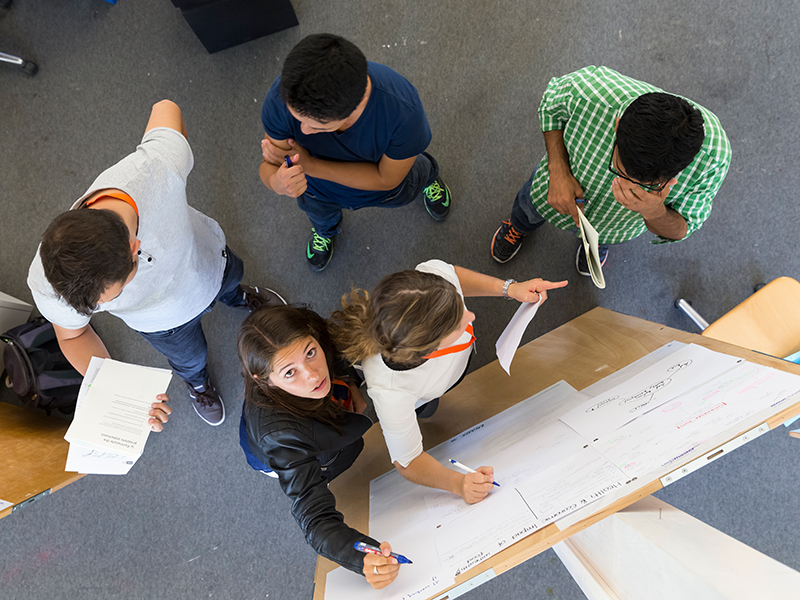
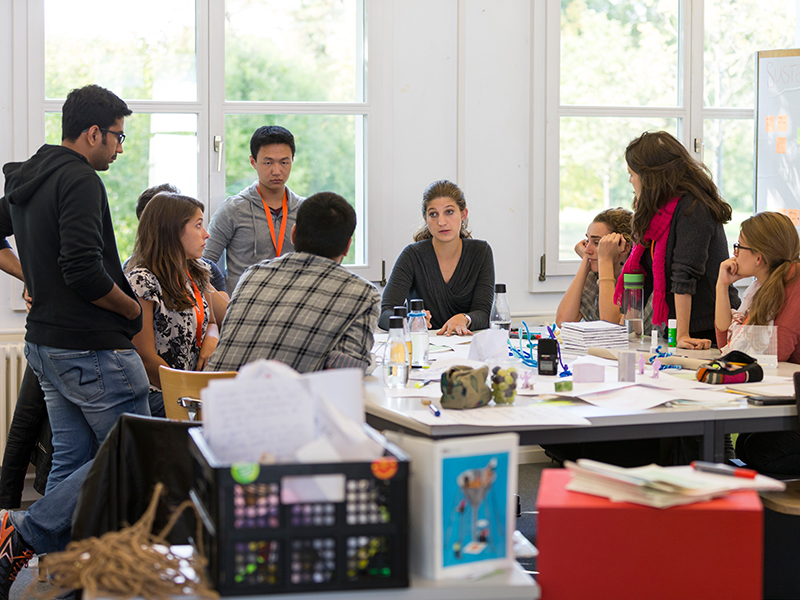
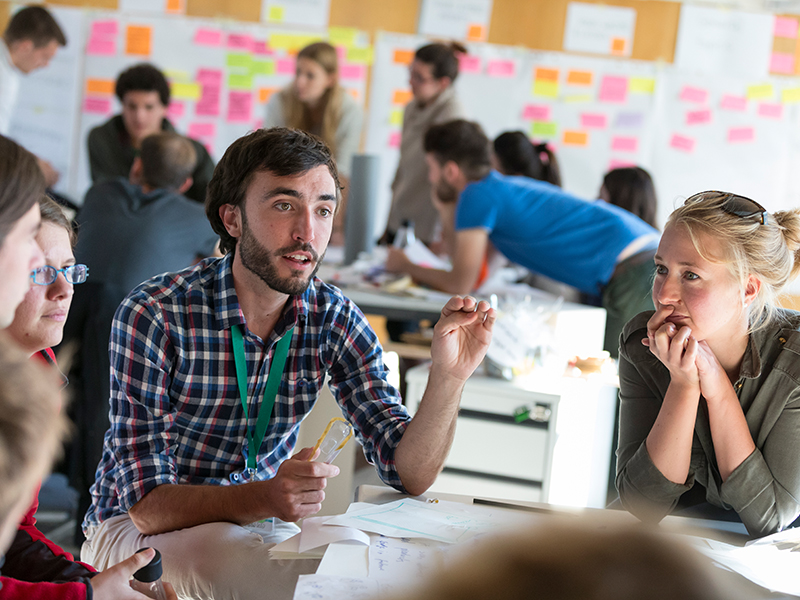
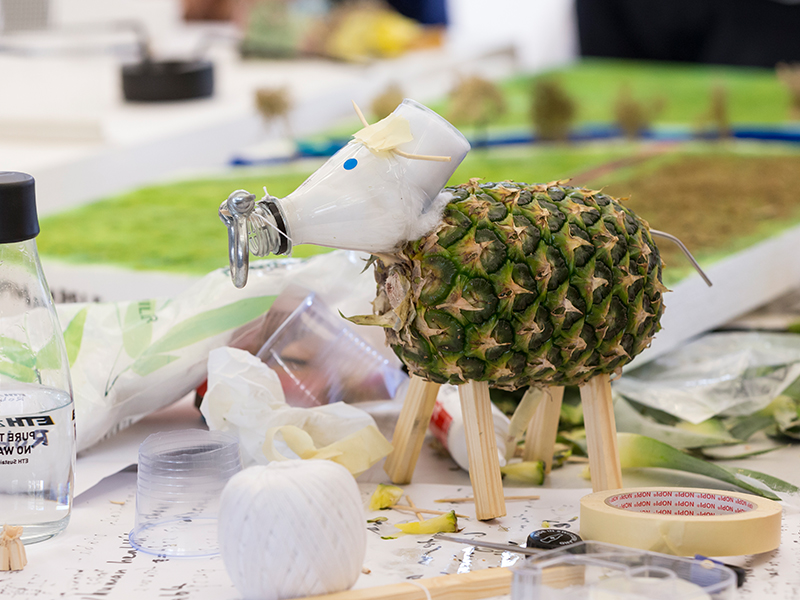
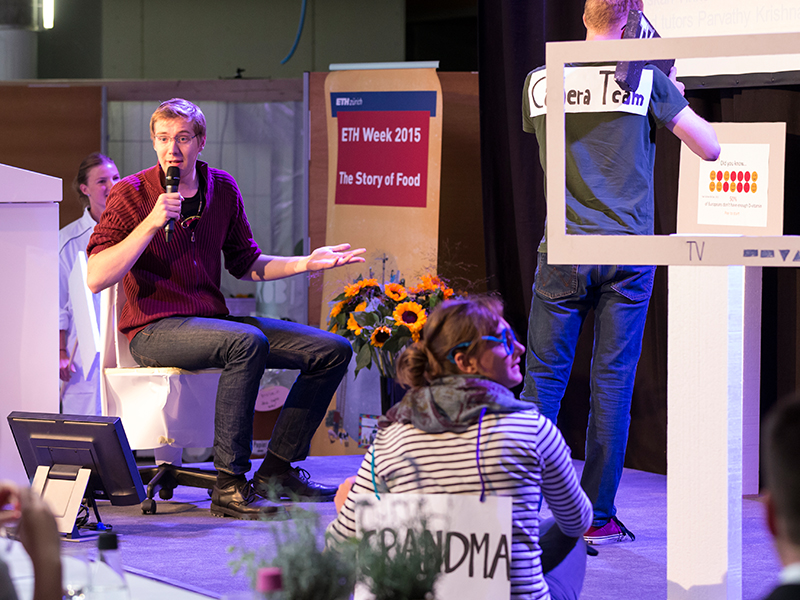
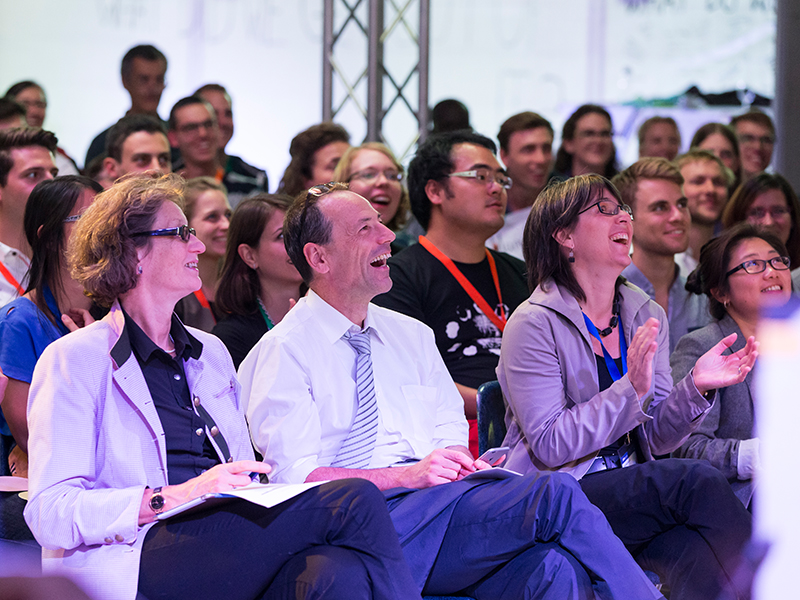
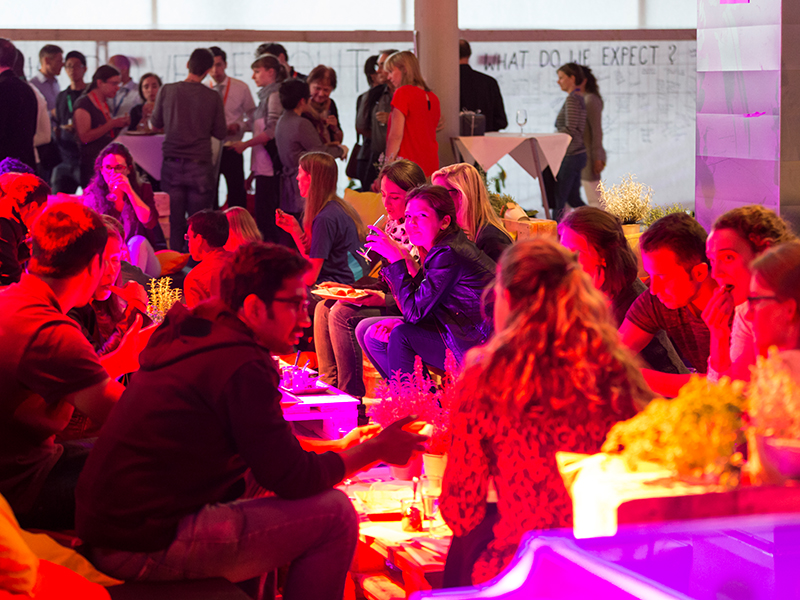
Comments
From a participants point of view it was a great experience. Exchanging, developping and prototyping ideas with so many different people was very exciting as this rarely happens whithin my usual studies. I really hope, that this program will be continued in the future.
Critical thinking pushes you out of your comfort zone, it forces you to reconsider what you thought as established, it makes you see the bigger picture while considering feasible solutions. It was definetly a challenging and rewarding week. I am already waiting for the next ETH week where students coming from so many different backgrounds can gather again to tackle real and important societal problems.
GREAT ATTEMPT: The leaders of countries should be invited so they could learn more about the bigger picture, use of a countries resources and getting the population focused on creative thinking. Of more importance take a few of the ideas and make them happen regardless of cost. There is no display of imagination other than to have power which is a mugs game. Maybe Norway could be considered for they have put away enough of their oil revenue for the future.